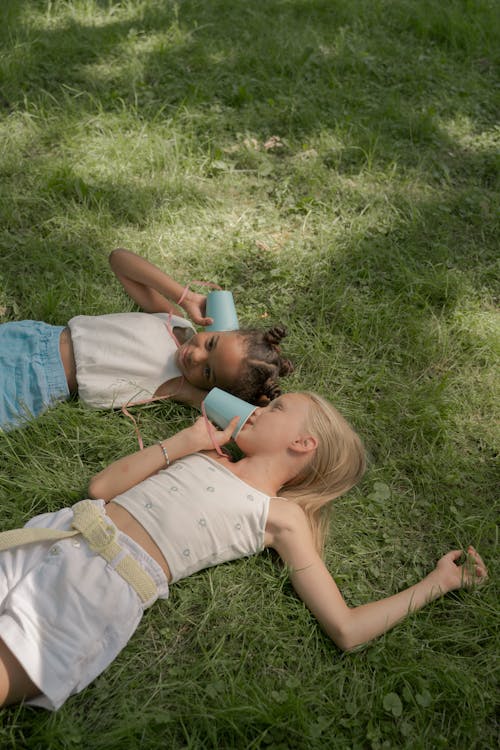Coming back together

Photo by Ron Lach from Pexels
Sitting on the bed in my parents’ cold spare room, I’m surveying the hideously impressive ‘floordrobe’ which seems to come with being a a travelling international teacher – the ‘visiting relative’. Since I left the UK in 2009 for a school (and boyfriend…) in Geneva, then moving further afield to Singapore in 2015, these visits – the airports, the jetlag, the catch-ups – have been a part of our (shudder) ‘expat lifestyle’, and one I’ve taken for granted, even grumbled about on more than one occasion. Over the last two years of course all that has changed. I’ve had to explain to relatives why, again, I cannot see them; explain, again, my anxiety at bringing two children from Singapore to the raging wave of Omicron in the UK; and ask myself guiltily whether a life split across two different sides of our ailing planet is one that I should be trying to sustain.
Still, for many of our teaching staff, this has been the first opportunity to leave our tiny island and see family in more than two years; it is certainly the first period that could be described as anything like time out for our school leaders since the pandemic began. Many of our colleagues are still waiting for travel to open up with their home countries, and of course our non-academic staff have been working throughout, public holidays aside. In all of these cases there are the possibilities for joy and celebration, alongside perhaps quite heavy emotional work; being apart from family, again – or perhaps being just a bit too close, all. of. the. time. In my own case, I’ve returned to my family minus the Geneva boyfriend who become my (now ex-) husband, with two children 3 years older (and so much wiser and cooler…) than they were the last time their grandparents saw them. There’s been so much grief, and relief – certainly a bittersweet reunion.
So how do we all come back together? As we return to Singapore, and to school, how do we find the space (and the time, let’s be honest) to honour each others’ experiences? How to we reconnect to, and strengthen, the relationships with colleagues that will sustain us through online learning, ongoing restrictions, and an oncoming wave of Covid?
Some time ago now, Priya Parker’s superb The Art of Gathering got many of our staff thinking different about how we intentionally come together in teams (thanks @tricia_fried!). Over the break, with time to do some reading, I’ve also been thinking about togetherness and relationships, thanks to Owen Eastwood’s Belonging, and most recently HeartSpace by Antonia Issa Lahera and Kendall Zoller. These writers have me thinking more deeply about the need to prioritise (re)connection; to be deliberate in the spaces and language we construct to acknowledge key moments in the life of a team, such that these become symbols or rituals to which we can return, and remember who we are together. As Eastwood reminds us in his chapter ‘Renewal’, “culture never stands still. Every day it shifts. How we deal with new situations redefines who we really are and how we really do things.” (127)
Practically then, what could this look like? How could we make our return to school something of a ‘renewal’, and not a repetition of empty exchanges, so often laden with assumptions (“How was your break?” “Have a good Christmas?” ).
Lahera and Zoller tell us that we can’t afford to leave these things to chance – “a culture of care, trust, collaboration, and joy happens by design” (9)- and so intentionality is key: what is the exact nature then of the challenge we want to address? Some of these are now familiar, adaptive challenges, existing against an unsettling backdrop of further changes as many families choose to leave Singapore:
- How do we build relationships, get to know and trust each other better, when we cannot all be together in person?
- How we collectively (re)define our identity and values in ways which include, rather than exclude?
- When there have been, and continue to be, so many technical challenges to address, how can we make sure that people come first?
Here are some initial ideas:
| Instead of… | Maybe we could… |
|
Top and tailing meetings with time for a quick coffee and catch-up
|
In our first meetings back with each other – in all our different teams – prioritise intentional reconnection, with a framework to support conversations – and I don’t mean icebreakers! Be prepared to give at least half – maybe all – of our meeting time for this. Be explicit about why we’re doing what we’re doing, and how. |
| Passing each other at the coffee counter or snack table in the corner of the meeting room | Create places around which people can gather – food in the middle of smaller tables in as easy win if it’s possible, but we could also invite people to gather around images around the room, or provocations. And none of the standing-around conversations that are so hard for people who need time to settle and be comfortable: I’m thinking about the powerful fireside connections described in Belonging.. Picnic rugs or blankets on the floor for small groups? |
| Asking ‘how was your break?’, or the endless, exhausting new year resolutions. |
Offer questions for groups to engage with to connect to each other more meaningfully: What was a really peaceful or restful moment for you in the time since we last saw each other? What’s an idea, thought, person, or moment, that feels energising for you as you step into this new year? Tell us about a moment that really made you laugh hard over this last month. What gift did 2021 give you, that you want to carry into 2022? How can you pass it to others? What’s a worry, question, or feeling you want to set aside for now to be able to connect with others today? What makes you grateful to be where you are now? These prompts could easily be printed on ‘menu cards’ for work spaces, printed on staffroom fridges, or listed on agenda. But I think that anything which encourages people to engage physically, tactilely, helps to connect us with each other more readily, instead of staying closed on our physical space: can the prompts be pulled separately, in turns, from an envelope or cup? Maybe we invite people to draw or choose a symbol in response, or maybe ideas are physically posted in particular places than can then be returned to (I loved the symbol of the lighthouse as it’s used in Heartspace to capture all kinds of ideas). |
I am someone who finds it hard to ‘get into it all’ ((c) Logan Roy) and acknowledge, much less examine, All The Feelings when I’m in my professional space – so none of these ideas would come easily or comfortably to me. But I think that it’s an important bridge to cross if we want to build authentic connections with our colleagues, especially heading into our third year of Covid, and that means needing to model a bit of vulnerability now and again. As I look ahead to the journey back to Singapore, I’m looking forward to seeing everyone, and hope that, when the big machine of the school starts whirring again, I don’t take for granted where each of us is coming from.
References
Thank you to Jess Lifshitz (@Jess5th), whose tweet got me thinking!
Eastwood, O. (2021) Belonging: The Ancient Code of Togetherness. Quercus Editions Ltd.
Lahera, A.I, and Zoller, K. (2020) HeartSpace: Practice and Rituals to Awaken, Emerge, Evolve, and Flourish At Work and In Life. Word and Deed Publishing.
Parker, P. (2018) The Art of Gathering: How We Meet and Why It Matters. Riverhead Books.





